Table of Contents
Introduction
When it comes to keeping our eyes healthy, the food we eat plays a crucial role. Our diet can significantly affect our vision and overall eye health. In this blog post, we’ll discuss which food is good for eyes and how you can nourish your vision with delicious and nutritious choices. Understanding which food is good for eyes allows you to make informed decisions that can protect your eyesight and enhance your overall well-being. Let’s explore the best options that contribute to a vibrant and healthy vision!
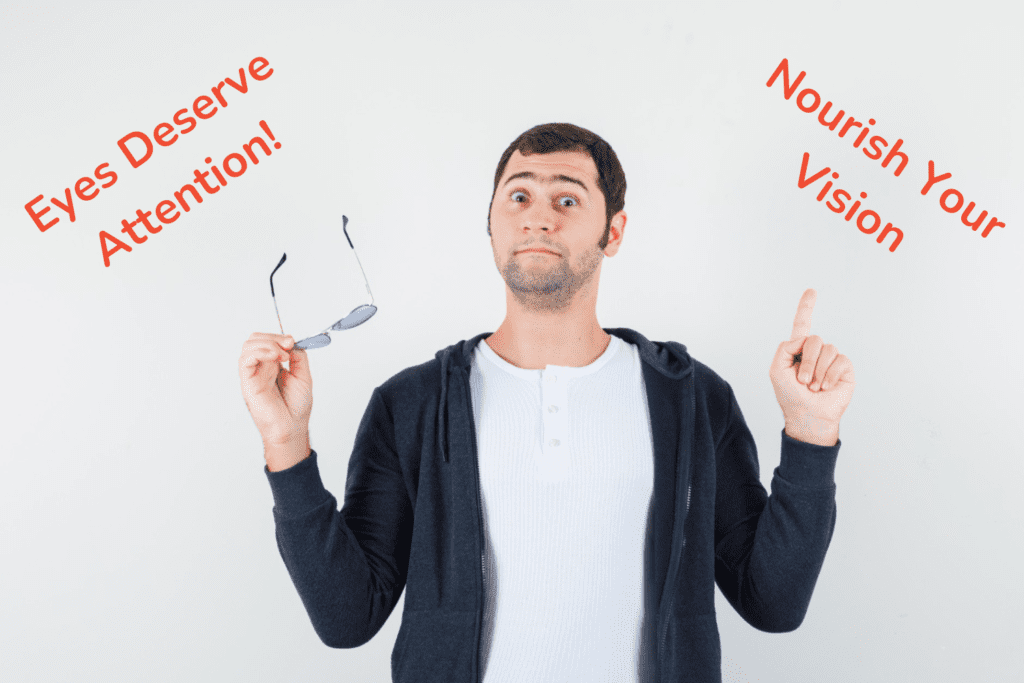
Why Nutrition Matters for Eye Health
Our eyes are complex organs that require a variety of nutrients to function properly. A balanced diet not only helps maintain good vision but also protects against common eye problems such as cataracts and age-related macular degeneration (AMD). By incorporating specific foods into your meals, you can support your eye health and enjoy clearer vision.
Key Nutrients for Eye Health
Before we dive into which food is good for eyes, it’s essential to understand the nutrients that play a vital role in eye health:
- Vitamin A: Essential for maintaining good vision, Vitamin A helps protect the surface of the eye and supports the retina. It is particularly important for night vision.
- Lutein and Zeaxanthin: These powerful antioxidants help filter harmful blue light and are found in high concentrations in the retina. They play a significant role in reducing the risk of AMD.
- Omega-3 Fatty Acids: These healthy fats are crucial for the health of the retina and can help reduce symptoms of dry eyes.
- Vitamin C: An antioxidant that helps combat oxidative stress, Vitamin C is essential for maintaining the health of blood vessels in the eyes and may lower the risk of cataracts.
- Zinc: This mineral is important for maintaining the health of the retina and can help slow the progression of eye diseases.
Foods That Are Good for Eyes
1. Carrots
Carrots are often the first food that comes to mind when discussing eye health. They are rich in beta-carotene, which the body converts into Vitamin A, essential for maintaining good vision. Consuming carrots can help improve your night vision and overall eye health. In addition to supporting the retina, the antioxidants in carrots can also reduce the risk of developing cataracts. Enjoy them raw as a crunchy snack, toss them in salads, or roast them with herbs for a delicious side dish.
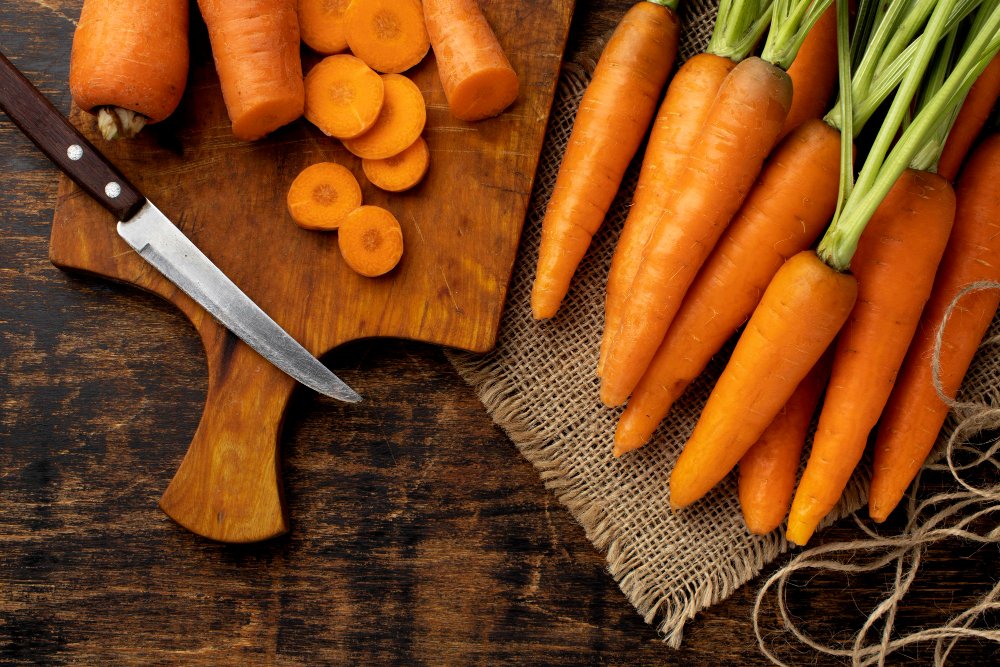
2. Leafy Greens
Leafy greens like spinach, kale, and collard greens are packed with lutein and zeaxanthin, two powerful antioxidants. These nutrients help protect your eyes from harmful blue light and reduce the risk of age-related macular degeneration (AMD). In addition to their eye-protective benefits, leafy greens are also high in fiber and vitamins, promoting overall health. Try adding spinach to your smoothies, salads, or omelets for an eye-healthy boost, or sauté kale as a flavorful side dish.

3. Fish
Fatty fish such as salmon, mackerel, and sardines are excellent sources of omega-3 fatty acids, which are vital for maintaining retinal health. These healthy fats can reduce the risk of dry eyes and help combat inflammation. Omega-3s also play a role in preventing age-related eye diseases. Aim to include fish in your diet at least twice a week. Grilling or baking fish with herbs and spices not only enhances flavor but also preserves its nutritional benefits, making it a delicious and healthful choice.

4. Eggs
Eggs are not only a versatile food but also a powerhouse of nutrients for your eyes. They contain lutein, zeaxanthin, and zinc, making them a great addition to an eye-healthy diet. The combination of these nutrients can help filter harmful light and support overall eye function. Whether scrambled, boiled, or in an omelet, eggs provide a tasty way to nourish your vision. Pair them with whole-grain toast for a balanced breakfast that supports eye health.
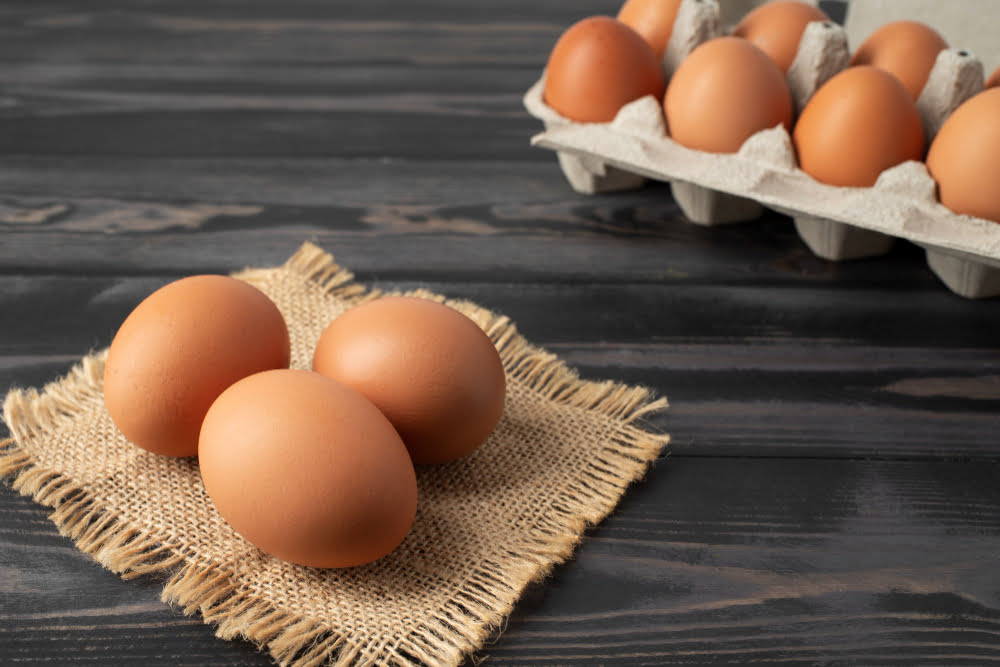
5. Citrus Fruits
Fruits like oranges, lemons, and grapefruits are rich in Vitamin C, an antioxidant essential for eye health. Vitamin C helps protect the eyes from damage caused by free radicals and can lower the risk of cataracts. Additionally, the hydration provided by citrus fruits is beneficial for maintaining healthy eyes. Enjoy citrus fruits as snacks, incorporate them into salads, or make refreshing juices. Their bright flavors can enhance any dish while supporting your vision.
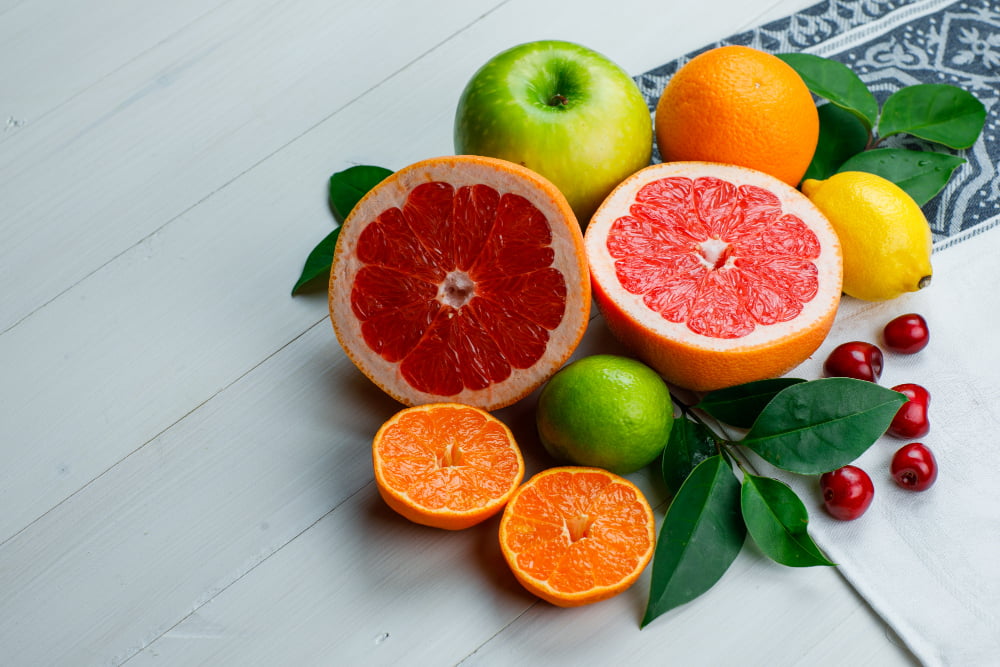
6. Nuts and Seeds
Nuts and seeds, particularly walnuts and chia seeds, are excellent sources of omega-3 fatty acids and Vitamin E. Vitamin E acts as an antioxidant, helping to protect the eyes from oxidative stress and damage. These nutrient-dense snacks can also support brain health and provide lasting energy. Snack on a handful of mixed nuts or sprinkle seeds over yogurt or smoothies for an easy eye health boost. They add texture and flavor to your meals while promoting overall wellness.
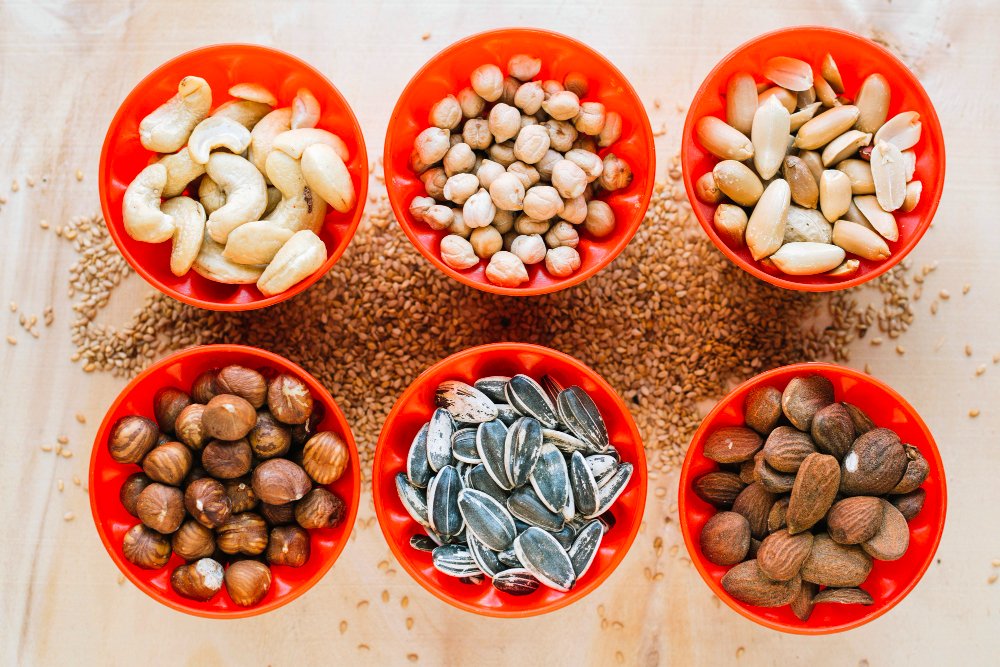
7. Whole Grains
Whole grains like brown rice, quinoa, and whole wheat bread are rich in Vitamin E and zinc. These nutrients support overall eye health and can reduce the risk of vision problems. Whole grains are also high in fiber, which can contribute to heart health and help maintain stable blood sugar levels. Incorporating whole grains into your meals can provide lasting energy and keep your eyes healthy. Consider swapping white rice for brown rice or adding quinoa to salads for a nutritious boost.
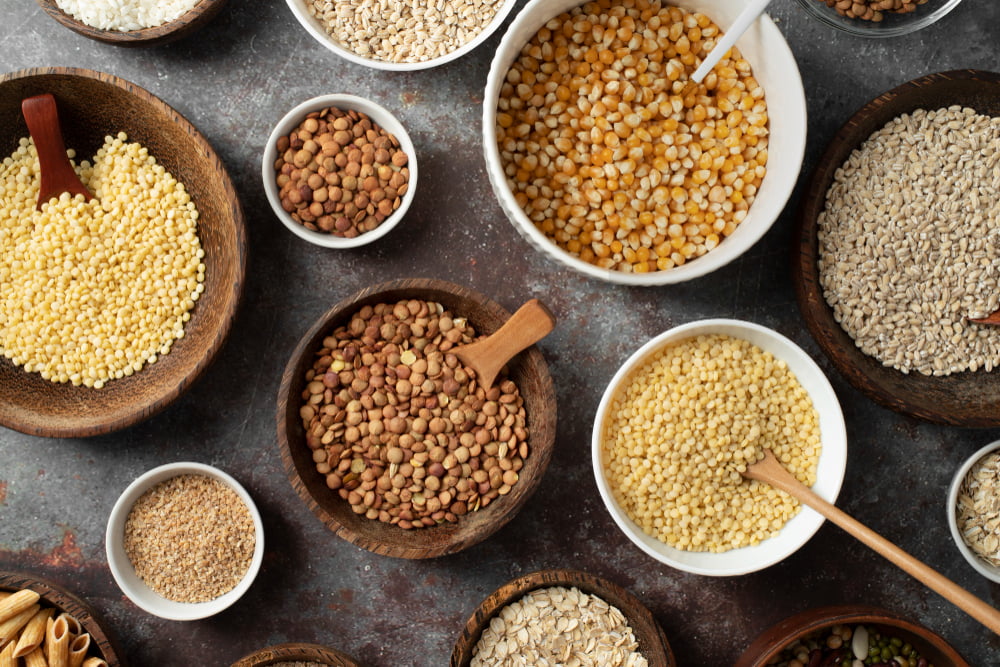
8. Bell Peppers
Bell peppers, especially the red and yellow varieties, are high in Vitamin C and beta-carotene. These colorful vegetables not only contribute to eye health but also add vibrant colors and flavors to your meals. The antioxidants found in bell peppers help protect the eyes from damage and can enhance overall immunity. Including bell peppers in your diet can support your vision and make meals more appealing. Slice them into salads, stir-fry with other vegetables, or enjoy them as a crunchy snack with hummus.
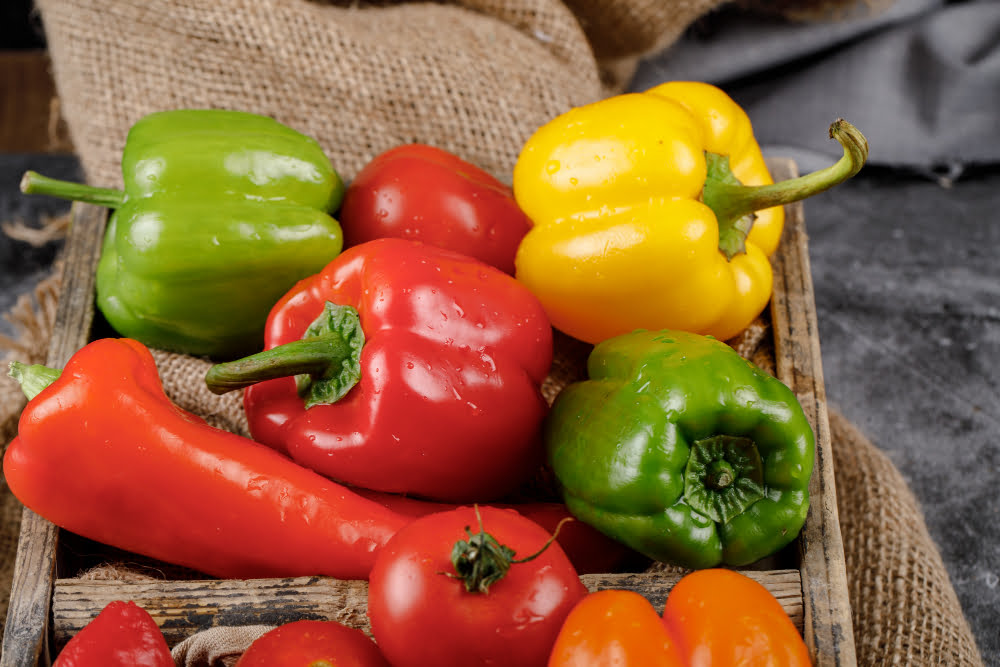
Tips for Eye-Healthy Eating
- Plan Balanced Meals: Make sure to include a variety of eye-healthy foods in your meals. A colorful plate is often a nutritious plate!
- Snack Wisely: Choose eye-friendly snacks like carrot sticks, nuts, or fruit instead of processed options.
- Stay Hydrated: Drinking plenty of water is essential for maintaining eye moisture and reducing the risk of dry eyes.
- Limit Sugary and Processed Foods: Foods high in sugar and unhealthy fats can negatively impact eye health, so try to limit these in your diet.
- Consider Supplements: If you’re not getting enough of these nutrients through food alone, consider talking to a healthcare professional about supplements that can support eye health.
Conclusion
Taking care of your eyes starts with what you eat. By incorporating a variety of eye-healthy foods into your diet, you can help nourish your vision and protect against common eye problems. Eating a range of foods that support eye health, from vibrant vegetables to delicious fish, ensures you get the necessary nutrients for optimal eyesight. So, make a conscious effort to include these nutritious options for your eyes in your meals, and enjoy the benefits of clearer vision for years to come!
Remember, a healthy diet is just one part of maintaining good eye health. Regular eye exams and protective measures, such as wearing sunglasses, are also important for keeping your vision sharp. Start today by making small changes to your diet and watch your eye health improve!
Check out this informative YouTube video on which food is good for eyes! Discover delicious options that can nourish your vision and improve your overall eyesight. Don’t miss these tips to help you maintain clear and healthy eyes!
FAQs
What foods are best for eye health?
Foods rich in vitamins A, C, E, omega-3 fatty acids, lutein, and zeaxanthin, such as carrots, leafy greens, fish, and citrus fruits, are excellent for eye health.
How does vitamin A benefit my eyes?
Vitamin A is essential for maintaining good vision, particularly for night vision. It helps protect the surface of the eye and supports overall eye function.
Can a healthy diet prevent eye diseases?
While a healthy diet can reduce the risk of eye diseases like cataracts and age-related macular degeneration, regular eye exams and protective measures are also important.
How often should I eat eye-healthy foods?
Incorporating a variety of eye-healthy foods into your diet daily can provide the essential nutrients needed to support eye health over time.
Are supplements necessary for eye health?
While a balanced diet is the best source of nutrients, some people may benefit from supplements. It’s best to consult with a healthcare professional before starting any supplements.

